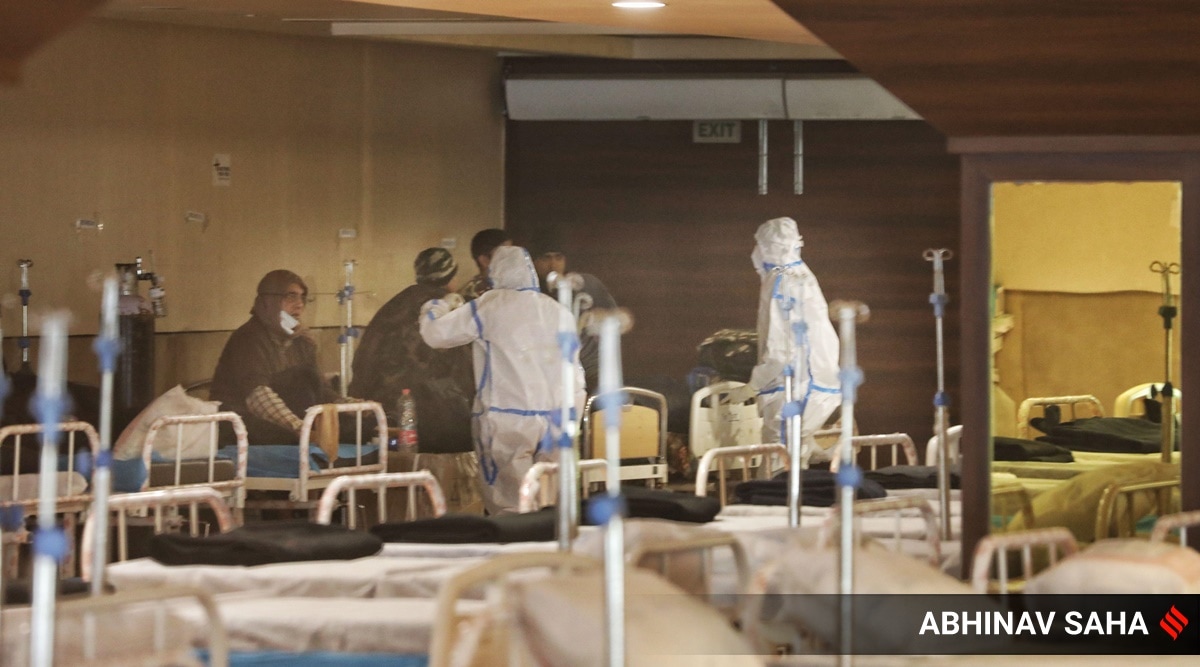The Centre Wednesday said that while hospitalisation rate may be low at the current levels of the Omicron surge, the Covid-19 cases are spreading at a large scale, and flagged that in just one week, 300 districts have reported more than 5 per cent positivity rate, compared to just 78 districts in the previous week.

 Twin concern emerging in states across India
Twin concern emerging in states across India
The health ministry said that there has been a progressive in districts reporting an increase in case positivity. In the week ending January 11, 300 districts have a case positivity more than 5 per cent compared to just 78 districts in the week ending January 4.
The head of India’s Covid-19 task force, Dr V K Paul, further flagged that positivity rates being reported in certain districts are “phenomenally high”. “The intensity of the pandemic has increased. It is quite clear from the data that it is being driven and powered by Omicron. It is rapidly replacing or has replaced the previous dominant Delta variant. Omicron has high transmissibility and growth rate…We are seeing phenomenally high test positivity rates,” Paul said.
Paul reiterated that Omicron is not common cold and it has the potential to overwhelm the health infrastructure in the country. “Understanding the disease from Indian experience… it may look like the hospitalisation rate is low. Maybe. But it is spreading at a large scale. If one is infected, the entire family gets infected. We cannot lower the vigil and preparedness. I endorse the statement of the WHO: Omicron is not a common cold. It is not a simple or ordinary infection. We cannot take this lightly,” Paul said.
“Also the current situation is like this because of the high vaccination rates… because vaccines provide protection against severe disease. So Omicron is not a common cold and because of it, many health systems have collapsed in a few countries. Many health workers have been forced to stay at home. There is more pressure. We have to slow the transmission,” Paul said.
The Centre Wednesday also warned that there is “rampant and irrational use” of the anti-viral pill Molnupiravir, emphasising that efforts should be made to restrict its use as known and unknown harms far outweigh its claimed benefit.
Story continues below this ad
On Wednesday, DG ICMR Dr Balram Bhargava spelled out the recommendations of the experts of the Covid-19 task force, highlighting that Molnupiravir — the first anti-viral drug granted emergency use authorisation (EUA) by the drug regulator — has certain risks that warrant caution in its use.
“We have had extensive debates and discussion among national experts… The final conclusion was that Molnupiravir has certain risks that warrant caution in its use. Number two, experts present at the meeting opined that there is a rampant and irrational use of Molnupiravir. Number three, efforts should be made to restrict its use as known and unknown harms far outweigh its claimed benefit,” Bhargava said.
“Number four, the currently available synthesised evidence was reviewed and the members unanimously agreed that it does not merit the inclusion of Molnupiravir in national treatment guidelines. The emerging evidence will be constantly reviewed,” Bhargava said.
Bhargava also said that there is no evidence of the benefit of the use of Molnupiravir in persons previously infected with Covid-19 or who were vaccinated. “Lastly, it was further highlighted that the current clinical window of an application appears extremely narrow for Molnupiravir with relevance only to the following: elderly, unvaccinated with other comorbidities. There is no evidence of benefit in diabetic patients, and those who were previously infected with Covid-19 or were vaccinated,” Bhargava said.
Story continues below this ad
Paul, during the briefing, also raised concerns of irrational consumptions of drugs for Covid-19 treatment. “There is a concern. Whichever medicines are being given (for Covid-19), there should be a rational approach in using them. They cannot be overused. In the last wave, we witnessed a scary situation where the overuse of drugs caused mucormycosis…There is a guilt that there was a overuse. Steroids are very potent and life-saving drugs, but they also have side effects. They disturb many bio-chemical pathways. We have learnt our lessons. We don’t want that situation to repeat,” Paul said.
“General public should be aware of these set of rational treatments… we have true concern over overuse and misuse of drugs. For mild symptoms, in case of fever, only paracetamol should be given. For cough, one can take cough syrup, warm water, and, gargle and only if the cough persists for more than five days, in selected cases, you can use budesonide. These are the only three things to be done… we would request our medical fraternity to follow the rational guidelines,” Paul said.



 Twin concern emerging in states across India
Twin concern emerging in states across India





